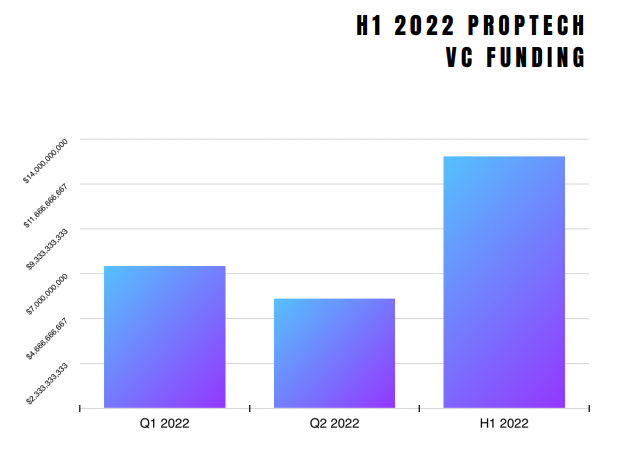Topics: commercial real estate, Process automation, proptech, real estate, technology
Posted on October 25, 2022
Written By
Siddharth Sujan

Despite being commonly referred to as the world’s largest asset class worth over $200 trillion, the real estate industry has been quite reserved in its approach towards digital transformation. Heavy dependency on legacy practices, high implementation costs and a general lack of skillsets have all come together to make technology adoption relatively slower in the commercial real estate (CRE) sector.
The CRE technology landscape is going through a massive change and it’s all happening right now.
The foundation stones of the real estate tech revolution were laid a few years prior to the COVID-19 outbreak. However, it is safe to say that it is only post the pandemic that the ‘proptech’ revolution has truly found its footing and if early trends are to go by, it promises to be quite the uphill ride from here on.
In the broader sense, proptech, or property technology, refers to all the tools & platforms that help real estate experts optimize the way people buy, sell, market and manage properties. As the pandemic has brought about several changes to the traditional real estate cycle, proptech essentially acts as a much-needed bridge that connects real estate to technology.
Much like the general outlook towards technology in other industries, leading CRE companies have let their guards down and embraced the use of technology in the last couple of years – and the numbers speak for themselves. According to research by CRETI, a record-breaking $32 billion was invested into real estate technology with more than 9000 new proptech companies setting up shop in the last decade alone.

The sky-high demand for proptech is a clear indicator of the CRE tech boom that is likely to follow. Over the next few quarters, businesses are more likely to invest in technology that optimizes the performance of a tech-drive, Gen-Z workforce while improving the end consumer experience.
Let us look at some of the technologies that could redefine CRE in times to come:
Machine Learning (ML) & Artificial Intelligence (AI)
The use of AI & Machine Learning has been a talking point for almost a decade now. However, the sudden change in consumer expectations has propelled the use of such technologies in the CRE sector. AI is now playing a pivotal role in catering to the needs of the modern-day buyer – allowing companies to leverage raw data to make finding, viewing and purchasing of properties a lot faster & efficient. Not just that, industry leaders are also banking on tools based on AI & ML to improve their overall efficiencies by automating repetitive back-office tasks.
Predictive Analytics
Much like businesses in other industries, rapidly growing CRE companies often end up missing out on the potential of data altogether. The modern-day business scenario, however, is a lot more cut-throat and businesses that leverage data are more likely to have a competitive edge over companies that miss the bus.
Predictive analytics allows CRE executives to utilize historical and current data to predict trends, patterns, pricing and socio-economic events, amongst other things. In an industry where price fluctuations are common and can impact operations gravely, these predictions can go a long way in making informed business decisions.
Mobile Applications
With the world moving towards a mobile-first approach, CRE companies are also expected to invest heavily in mobile applications to address the needs of a generation that demands a superior experience from the palm of their hands. A relatively new phenomenon in real estate, mobile applications are an effective solution that help connect sellers to buyers in real-time – enabling the end consumer to browse properties, find agents, buy, sell and rent in a faster and more transparent manner.
Customer Relationship Software (CRMs)
Managing & maintaining client relations makes for a critical element to ensuring business continuity in the commercial real estate sector. Businesses that continue to rely on age-old, traditional methods for such activities are not only likely to spend excessive time & resources, but also put themselves at the risk of hampered relationships. CRMs, on the other hand, allow seamless tracking of communications and data to optimize client relationship management – benefits that are likely to attract the attention of CRE owners in a competitive business environment that is driven by customer experience.
One of the primary reasons why CRE companies have often shied away from embracing technology is the complexity such solutions bring about in terms of implementation. In fact, many a time, organizations also end up with failed automation projects – which only do more harm than good. Therefore, businesses need to bring in the required expertise that allows them to identify and seamlessly implement technology that best addresses their specific organizational challenges.
Backed by rich industry experience and a unique partnership approach, QX Global Group offers a wide range of consulting & technology solutions that helps enable & accelerate digital transformation for our clients. Our end-to-end automation solutions are highly customizable in nature and can be tailored to suit your needs. Get in touch with our transformation experts today to know more about our service offerings and capabilities.
Originally published Oct 25, 2022 04:10:43, updated Oct 25 2022
Topics: commercial real estate, Process automation, proptech, real estate, technology